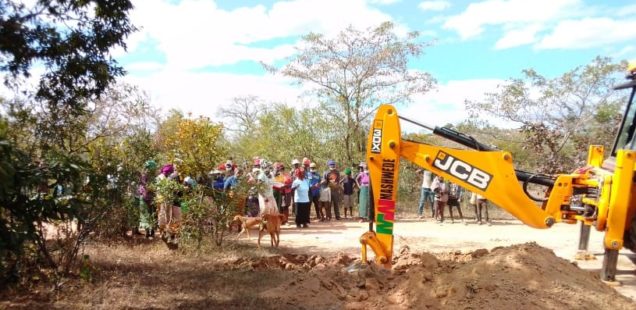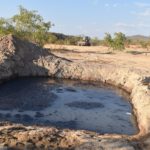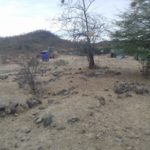
Communities of ethnic and linguistic minorities strengthen their solidarity to defend themselves and their territories from expanding extractive industries in Zimbabwe
By 2023, Zimbabwe is projecting a US$12 billion economic target from extractive industries (mostly for gold, diamonds, coal, gas, and lithium), supposed to support ambitious development targets. This industrial expansion is expected to allow multinational companies to tap into the country’s resources and operate in rural communities inhabited by fragmented ethnic and linguistic minorities, including the Nambya, Tonga, San, Shangani, and Ndawu peoples. Recent actions by mining corporations have already caused land degradation and air and water pollution in the territories of such communities. In some cases, there were even attempts at relocating minority communities from their ancestral lands. The organization Zimbabwe Ethnic and Linguistic Minorities Solidarity Action (ZELMSA) promotes the national and international convergence of ethnic and linguistic minorities to defend their collective rights, territories, and communities. It works by formulating policy recommendations and carrying out strategic actions to prevent forced evictions due to mineral extraction activities.
As part of this initiative—jointly supported by the Paul K. Feyerabend Foundation and Solifonds Switzerland— ZELMSA will coordinate national and international activities to establish a ‘solidarity platform’ among ethnic minorities in Zimbabwe. The activities will include mutual visits (only small numbers of people will physically travel to keep costs low and prevent the spread of the COVID pandemic) and online gatherings, as well as the development of a national Solidarity Statement among linguistic and ethnic minorities under the mire of extractive industries. Some community solidarity visits will link Chilonga (in Chiredzi District) and Dinde (in Hwange District) physically bringing messengers/ observers to and from two of the minority communities that are currently directly affected. The visits will coincide with local community-organized meetings and actions, delivering messages of mutual solidarity and support, amplified through media coverage. Following the visits, a 2-day National Ethnic and Linguistic Minorities Indaba will be held online convening the 12 different ethnic and linguistic minorities of Zimbabwe and offering solidarity support to the Nambya, Tonga and Shangani minorities currently facing eviction. In the occasion, information about new developments with similar potential impacts in all minority areas will be shared. The Indaba-developed Solidarity Statement will be signed by all minority delegates and directly address the Speaker of Parliament; the President of the Senate; the Chief Justice; the Independent Constitutional Commissions (Zimbabwe Human Rights Commission, National Peace and Reconciliation Commission and Zimbabwe Gender Commission); and the Chiefs’ Council.
The Solidarity Statement will be disseminated via virtual press conferences and two radio programmes aiming at amplifying the national and international support and solidarity. Specific messages will also be sent to various organizations and mechanisms that defend the rights of ethnic and linguistic minorities at regional, continental, and international level, to inform them and seek their solidarity. Among others, these organizations will include the Working Group on Indigenous Minorities in Southern Africa (WIMSA); the Minority Rights Group International (MRGI); the Indigenous People of Africa Coordinating Council (IPACC); and the UN Special Rapporteur on Ethnic Minorities. Meanwhile, several non-violent symbolic actions (“Stand with Dinde and Chilonga Villagers”) will be carried out both virtually (online) and physically (offline), accompanied by radio and other media coverage. The actions will be carried out coinciding with community activities such as meetings and court cases and with national and international significant days, which will amplify the community concerns and voices and further build local, national, and international solidarity. It is expected that all the ethnic minority communities in the Indaba will mobilize in support of this symbolic civil resistance, enhancing national and international pressure on the Zimbabwean government.
Via this initiative ZELMSA strives to promote better recognition and respect for the collective rights of ethnic and linguistic minorities, particularly the effective application of Free, Prior and Informed Consent (FPIC) principles in the mining sector. The initiative will enhance public information, citizen-led social accountability, and civic engagements, addressing up to 100,000 people who need more and better awareness of the adverse impacts of mineral extraction in the territories of linguistic and ethnic minorities in Zimbabwe. Such better awareness will encourage the Zimbabwean government to secure full respect for the civil, socio-economic, and environmental rights of its minorities via relevant policies. Citizen engagement is key to prevent the negative impacts of extractive industries.






